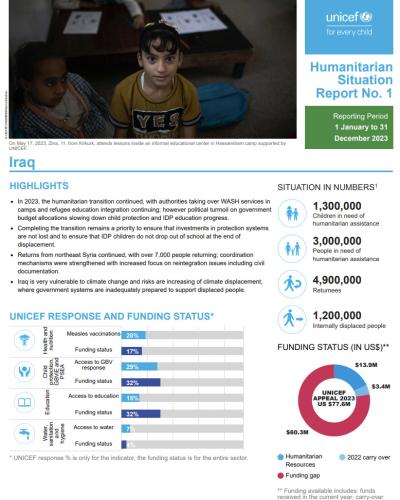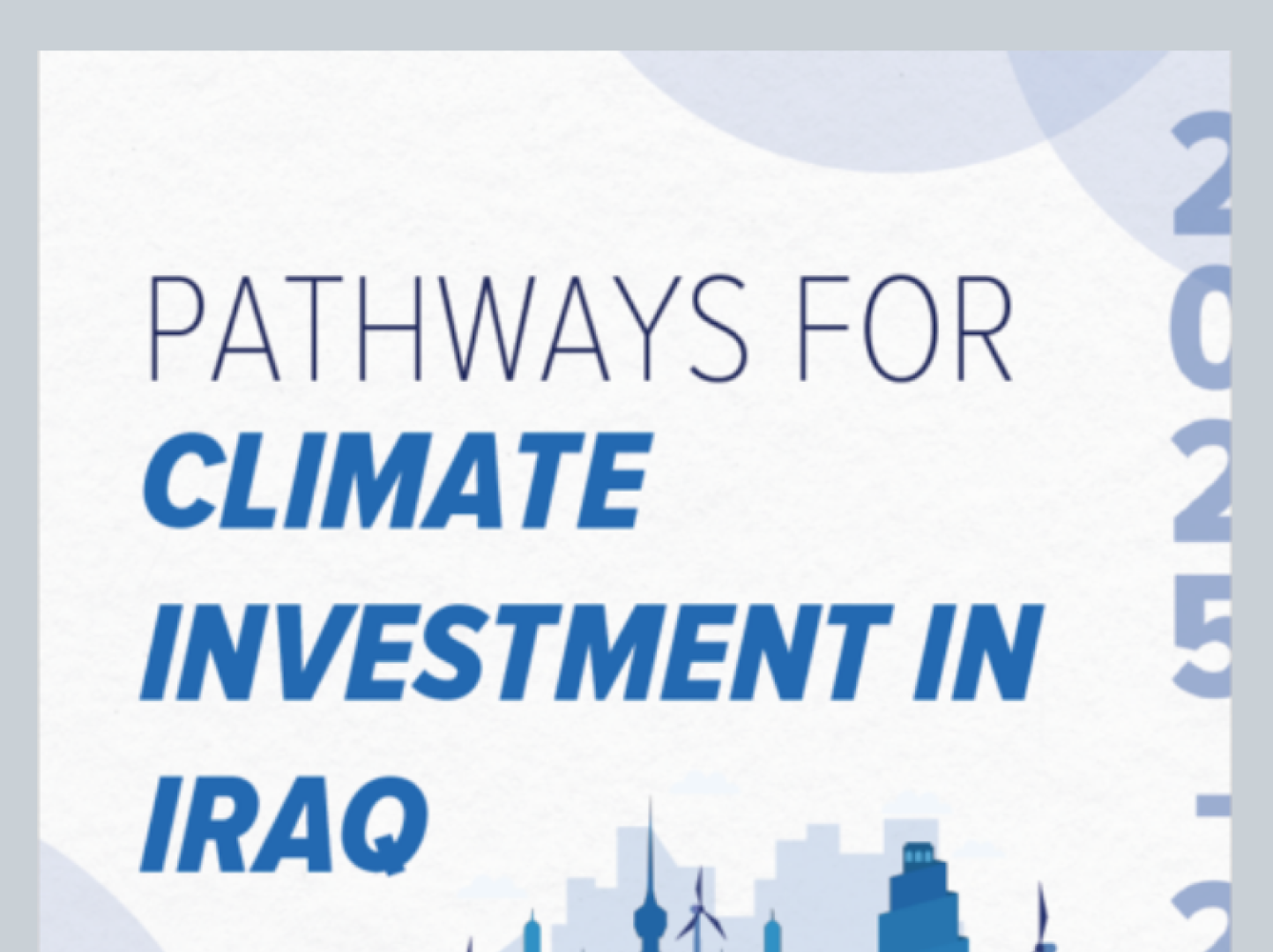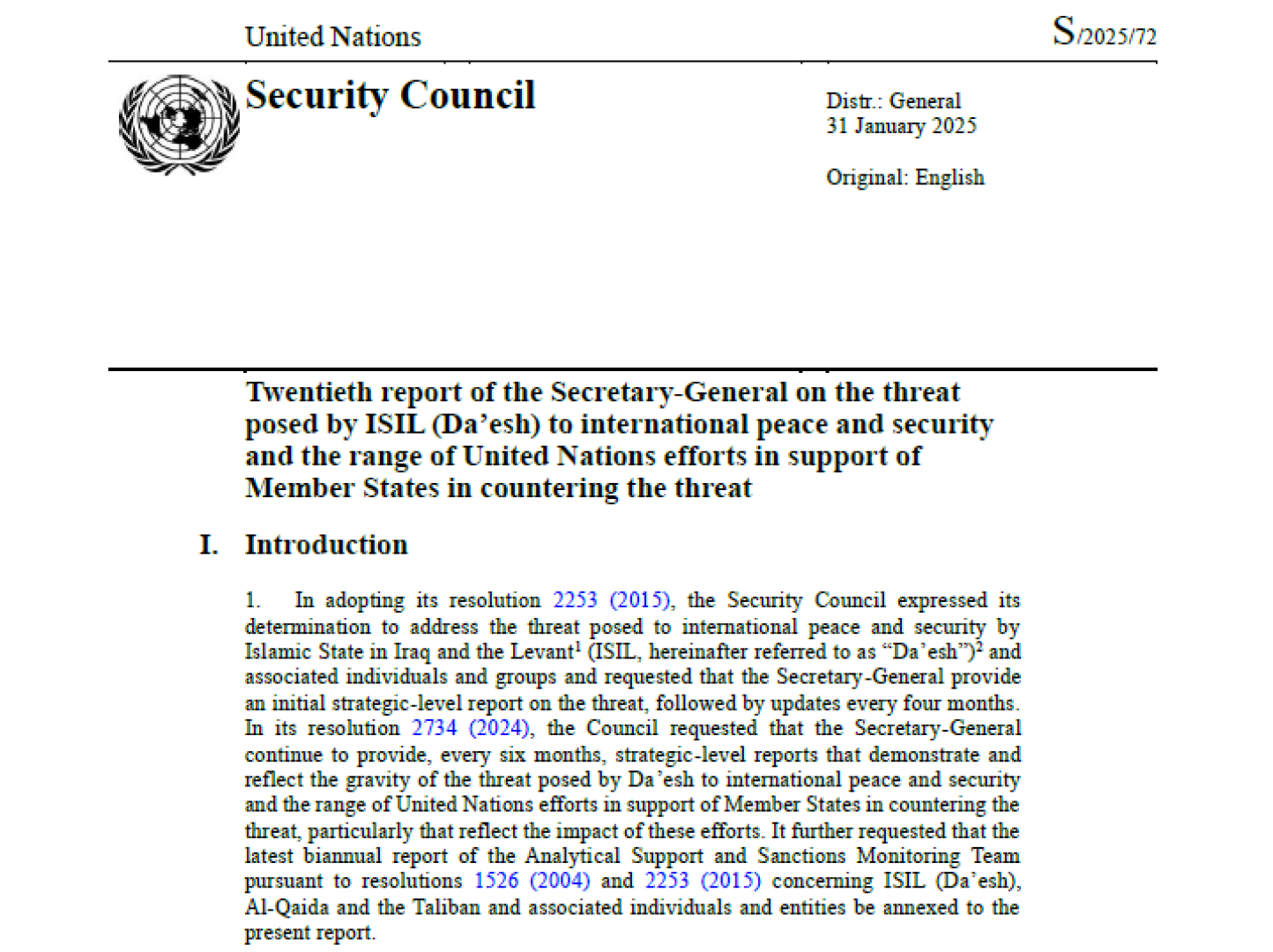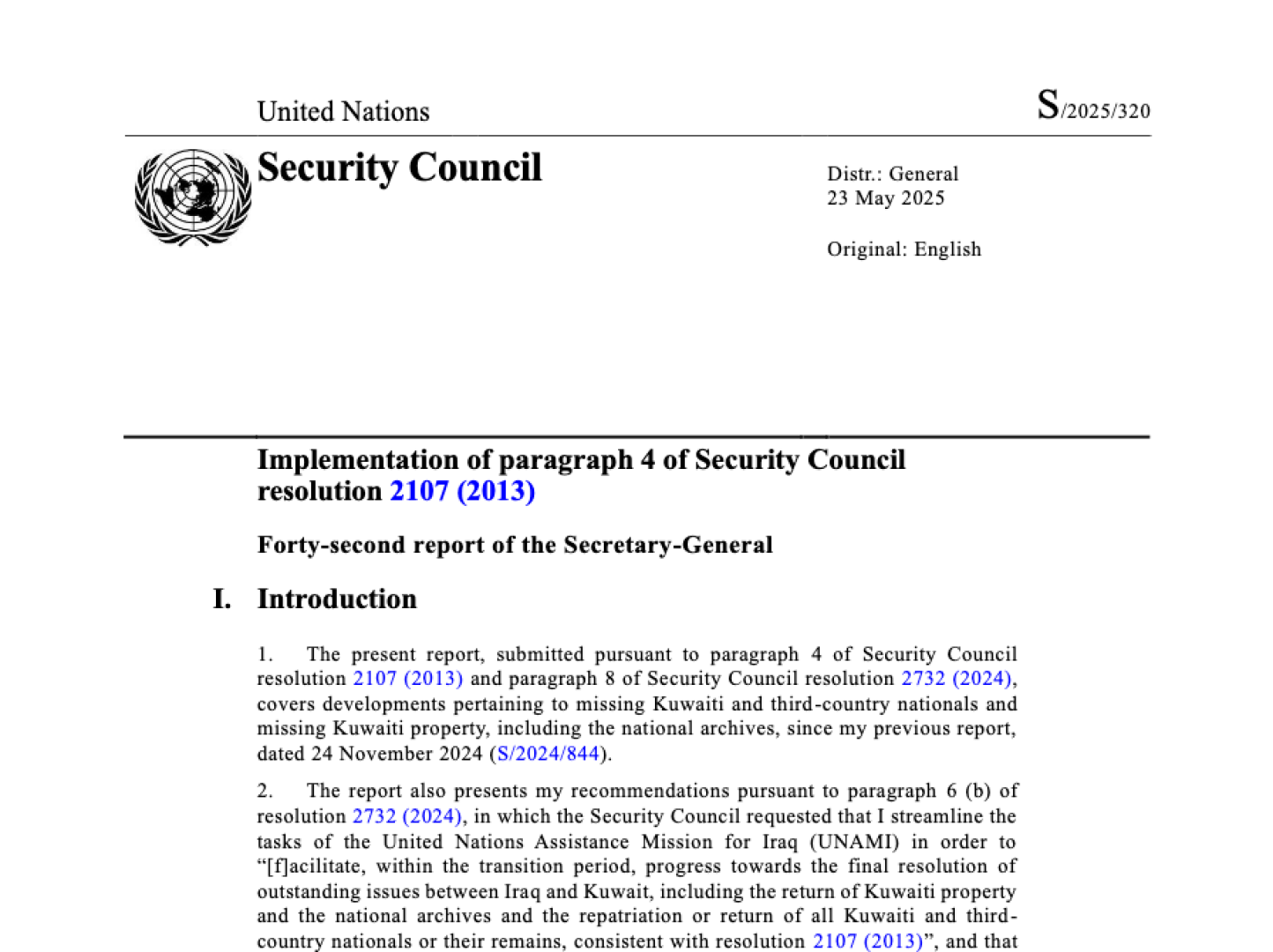UNICEF | Iraq Humanitarian Situation Report No. 1, 01 January-31 December 2023

HIGHLIGHTS
- In 2023, the humanitarian transition continued, with authorities taking over WASH services in camps and refugee education integration continuing; however political turmoil on government budget allocations slowing down child protection and IDP education progress.
- Completing the transition remains a priority to ensure that investments in protection systems are not lost and to ensure that IDP children do not drop out of school at the end of displacement.
- Returns from northeast Syria continued, with over 7,000 people returning; coordination mechanisms were strengthened with increased focus on reintegration issues including civil documentation.
- Iraq is very vulnerable to climate change and risks are increasing of climate displacement, where government systems are inadequately prepared to support displaced people.
FUNDING OVERVIEW AND PARTNERSHIPS
In 2023, UNICEF required $77.6 million to address the urgent humanitarian needs of vulnerable children and their families affected by protracted conflicts, political instability and climate change. Child protection initiatives represent the largest share of the country's appeal at 41%, followed by education and water, sanitation, and hygiene (WASH). By the end-year stage, UNICEF's Humanitarian Action for Children (HAC) appeal was 20% funded, with 18% received in 2023 and 3.38. million carried over from 2022.
UNICEF HAC appeal in Iraq in 2023 was mainly funded by Japan, the US Department of State BPRM, ECHO, and USAID BHA. The office utilised carry over funds from United State for UNICEF. Crucially, UNICEF Iraq received humanitarian funds in via UNICEF headquarters and regional office under humanitarian pooled funding, allowing the office to respond to emergency situations in a timely manner, reaching the most vulnerable populations in conflict and displacement-affected locations. UNICEF expresses its sincere gratitude to all its resource partners for contributions received.
To sustain essential services for vulnerable women and children and build national and sub-national capacities for smooth handover of basic service delivery for populations affected by protracted crisis and climate change, UNICEF requires flexible multi-year funding. Especially because of the slowed transition due to the Kurdistan Region of Iraq’s (KRI) budget crisis, continued funding is crucial to ensure a completion of hand over to government and integration of activities into government systems.
SITUATION OVERVIEW AND HUMANITARIAN NEEDS
The main humanitarian needs are for internally displaced persons (IDPs), refugees, returnees from northeast Syria and people being forced to move due to climate change. The United Nations system has, with the Government of Iraq, worked on a roadmap for ending displacement in Iraq, though return or local integration. UNICEF has worked to hand over both humanitarian coordination and services to authorities, following the deactivation of clusters in 2022. WASH coordination and camp services have been successfully handed over through integration into the KRG services, while child protection has been slowed down due to the budget crisis in KRI. The difficult internal political situation has also been a constraint to charting out future education arrangements for IDP children.
Returns from NES progressed at a steady pace, in a complex political process. Key challenges include civil documentation, acceptance and accessing services for the most vulnerable children and women.




















